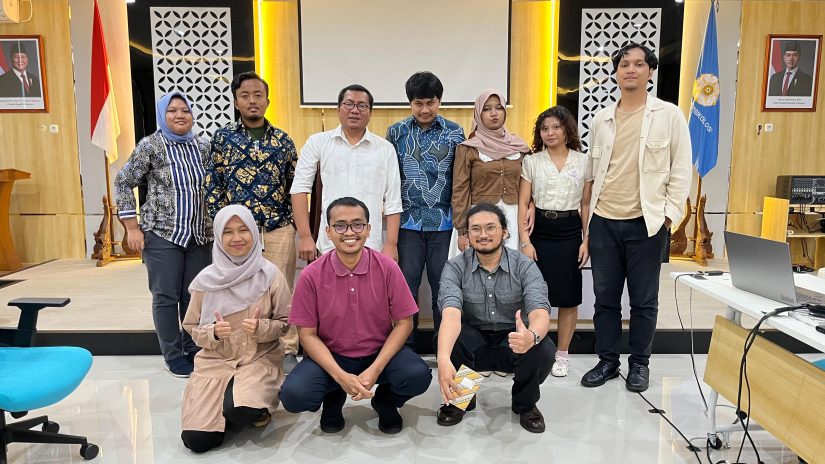
Angkringan #22, titled “Rasa in Javanese Tradition: Experience, Psychology, and the Soul,” was held on Wednesday, May 28, 2025, from 14:00 to 16:00 WIB. The event took place in a hybrid format—on-site at Room A-203, Faculty of Psychology UGM, with limited seating for 30 participants, and online via Zoom Meeting. This session was part of the pre-event series for the 2025 Summer Course organized by the Center for Indigenous and Cultural Psychology (CICP). As part of the lead-up to the program “Beyond Boundaries: Towards New Views of Indigenous and Cultural Psychology,” the discussion opened a space to explore local concepts rooted in the psychological traditions of Indonesian communities.
The event featured Ryan Sugiarto (a doctoral student in Psychology at UGM) as the Tamu Super (main guest), who presented key ideas from his article titled “The Javanese Rasa: Sense, Psychology, and Spirituality”, published in Culture & Psychology in 2024. Serving as among tamu (host and moderator) was Nurdiyanto, a Research Associate at CICP, who guided the discussion and offered critical reflections on the presentation.

In his presentation, Ryan explained that the concept of rasa in Javanese tradition represents a fundamentally different epistemological system compared to Western psychology. Rasa is not merely a reference to emotion or sensation but serves as a foundation for how Javanese people understand the self, others, and the spiritual world. He described rasa as a space for inner reflection, moral navigation, and a transcendent connection with the divine. Through this concept, the Javanese build a way of life marked by awareness, subtlety, and inner harmony.
The article that formed the basis of the discussion argues that rasa can be understood as a psychological category that integrates cognitive, affective, and spiritual dimensions. Drawing on the thoughts of Ki Ageng Suryomentaram and the ethical framework of Javanese culture, Ryan showed how rasa functions as a mechanism for regulating the inner life, inseparable from the social world. In this framework, Rasa becomes a living form of psychology embedded in daily practice, rather than a merely abstract concept.
The discussion, moderated by Among Tamu, was both active and reflective. Participants were invited to consider how Rasa, as a local system of knowledge, could be articulated in the language of contemporary psychology without losing its cultural context. Several questions addressed the methodological challenges in researching local concepts and emphasized the importance of developing psychological theories grounded in indigenous experience. Nurdiyanto stressed that exploring rasa is not only about preserving culture but also an epistemological step toward decolonizing knowledge and expanding the horizon of psychology.
As part of the pre-event series for the 2025 Summer Course, this session highlighted how local knowledge, such as the concept of rasa, can serve as an entry point for developing more contextual and culturally relevant approaches to psychology. In the spirit of the Angkringan, warm, open, and grounded, the forum successfully fostered a dialogue between tradition, theory, and lived experience, enriching psychological discourse with local roots often marginalized in mainstream scholarship.
Read more of Ryan’s writing at the following link: https://doi.org/10.1177/1354067X241300978
